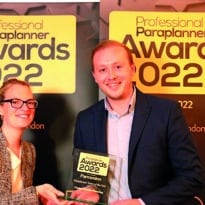Laura Randall, paraplanner in the Technical Support unit of South West regional IFA firm Monahans Financial Services, believes that over the next few years most financial planning firms will see the necessity of employing paraplanners, and ultimately paraplanners will be seen on a par with financial advisers.
“In the past I think paraplanning used to be a luxury for businesses,” she says. “For example, when I joined Monahans in 2004 no one really knew what a paraplanner was, then the firm took on one paraplanner who worked for one adviser. This is a progressive firm and it could see how paraplanners benefitted the business, thus now we have five paraplanners in the business – two working for individual advisers and three in a pool in one office, but collectively we are a hub of technical knowledge for the business as a whole”.
“I think if financial advice businesses want to be successful then paraplanning is a prerequisite. I do not see how you can run an efficient business without a paraplanner. If you’ve got well paid advisers sitting writing reports and hanging on the phone to a technical line or product provider service department, rather than being out talking to clients and finding new clients, I just can’t see how you are going to make that work going forward,” she says.
She sees the cost of employing paraplanners as being offset by the valuable resource paraplanning offers to an advisory business. “By using paraplanners the firm can have a hub of technical knowledge that can be shared among advisers”.
Laura believes paraplanning should be on a level with advising in terms of its value and prestige within the industry. “The word ‘para’ suggests parallel. Paraplanners should be working alongside the adviser not necessarily for them; it’s about working as a team. Paraplanning gives advisers the technical support and frees up their time, so it is spent in the best way which is going out and giving advice to clients.”
The fact that paraplanners can be equally or better qualified than advisers, as well as the core function that they are assuming in advisory firms, can see them get involved in key business decisions around investment strategy and due diligence. This will also see salaries rise on a par with advisers, she suggests. “When an adviser and a paraplanner are working well as a team they are mutually supportive and working for the benefit of the business. Paraplanners can provide a massive resource that is in line with an adviser role, so why shouldn’t they be paid a similar basic salary? It’s not best use of resources for advisers to do Paraplanning work but they can’t do their job without it.” There will be differences in remuneration, she acknowledges, because of the sales side to the adviser role, “when advisers go the extra mile to bring in new clients they should be rewarded for that,” she says, “but I don’t think a business can be successful without paraplanners and that should be recognised,” she adds.
So does that mean she would or wouldn’t want to be an adviser in due course? “I did consider it but I’m not interested in the sales side. I like the client contact and I get that in the job anyway, but the role of the paraplanner is so diverse and rewarding, particularly here at Monahans where I can get involved in the business decisions and helping put them in place, that for me is a career choice.”





























